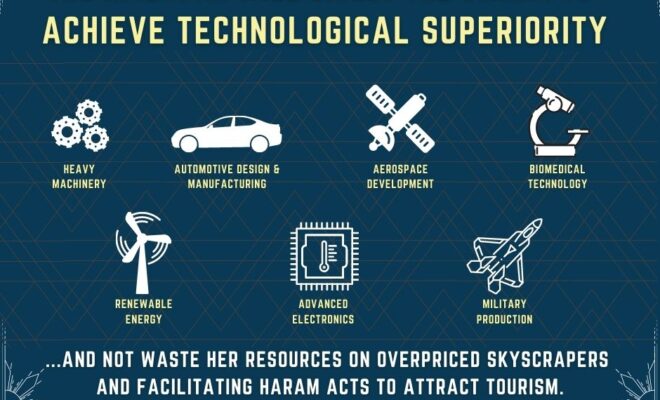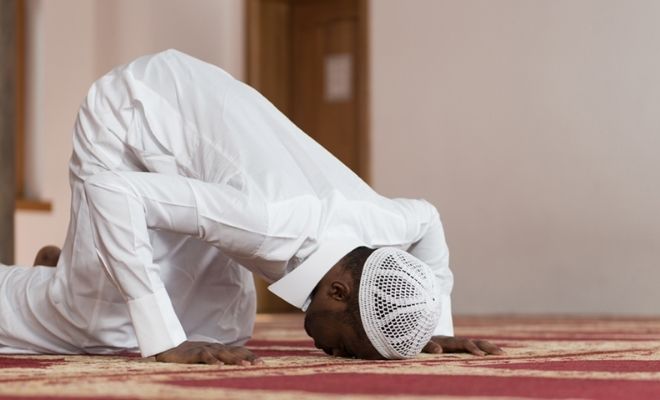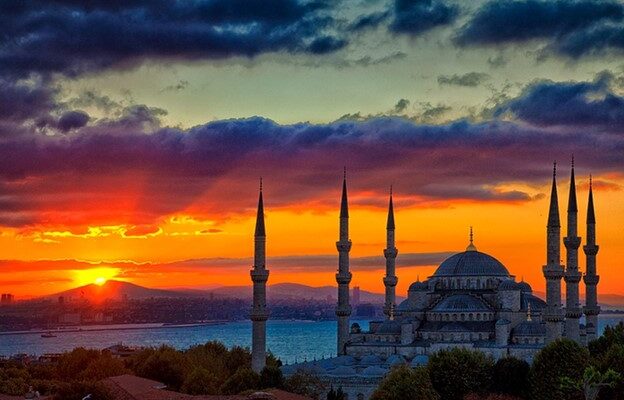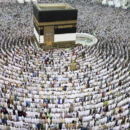Celebrating Hajj and Eid Together as One Ummah
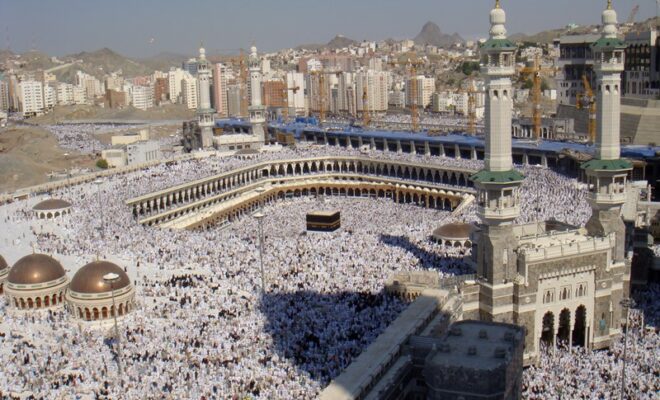
Having witnessed the first ten blessed days of Dhul Hijjah, Allah (swt) has blessed us with another Eid Al-Adha. More than two million Hujjaj have completed their rites – may their dedication be accepted – and in our current age of social media, the Ummah has seen the blessed images of the Ka’ba, the tents of Mina, the plain of Arafah, and the rocks of Jabal Al-Rahma.
And as the Hajjis removed their Ihram with the sacrifice of their hair and animals, we rejoiced in their accomplishments with the celebration of Eid Al-Adha.
But despite this organic connection between Muslims around the world and the Hujjaj, there has been a trend of local Masajid in Canada arguing not to celebrate Eid on the completion of Hajj, but to rather rely on a local sighting of the moon, which puts their Eid one day after the Eid celebrated by the Hujjaj after the completion of their Hajj.
What is the merit of this delayed local Eid, and what are its implications?
Following the pilgrims
Eid Al-Adha does not occur in isolation, but rather it is the final step of a series of events that tie together both the actions of pilgrims and non-pilgrims across the first third of Dhul-Hijjah.
For the pilgrims, the days of Dhul Hijjah coordinate the performance of Hajj, as Allah (swt) states in the Quran:
“Hajj is [during] well-known months, so whoever has made Hajj obligatory upon himself therein [by entering the state of Ihram], there is [to be for him] no sexual relations, and no sin, and no disputing during Hajj…” [2:197]
Allah (swt) also says:
“And remember Allah during [specific] numbered days. Then whoever hastens [his departure] in two days, there is no sin upon him, and whoever delays [until the third], there is no sin upon him for him who fears Allah…” [2:203]
Imam Al-Shawkanee and many other scholars stated that the beginning of the Ayah that exhorts believers to remember Allah (swt) is not specific to the pilgrims, but includes non-pilgrims as well.
This demonstrates that our actions in Dhul-Hijjah are tied to the same events that are followed by the pilgrims: As they prepare for Hajj, we observe the blessed days of Dhul-Hijjah; as they engage with the rites of Hajj, we fast and remember Allah (swt) as well; then ultimately when they have completed Hajj, we celebrate Eid with them.
This is further reinforced by the Hadith of the Messenger (saw), where he specifically encourages non-pilgrims to fast the Day of Arafah, but forbids the pilgrims from doing the same thing.
This means that the Day of Arafah, which is a particular rite of Hajj, has a connection to all Muslims, as those who have not been able to make the pilgrimage are encouraged to fast as an act of unity. Even the wording of the Hadith clarifies this, where the Messenger (saw) tells those not performing Hajj to fast “the Day of Arafah” – not “the ninth of Dhul-Hijjah,” which links this fasting directly to the reality of the pilgrims having arrived at Arafah.
Different scholars, including the companion Ibn Abbas (ra), would assemble in the Masajid in solidarity with their pilgrim brothers and sisters on the Day of Arafah. Qadi Ibn Al-Arabi explains: “People of different areas are followers to the pilgrims in this issue” (Al-Arabi, Ahkamul Quran, Vol. 1, P. 143)

Hajj pilgrims praying at Arafat
As the day of Arafah ends, the pilgrims move from Arafah to Muzdalifah, and it is recommended for the non-pilgrims around the world to start their Takbeerat, which will carry on till Eid when the Hujjaj will cut or shave their hair and sacrifice their animals – and the non-pilgrims will make their sacrifice as well.
This timeline clearly establishes that when it comes to the days of Dhul-Hijjah – whether it be the first week, or the Day of Arafah, or the Day of Eid itself – it is essential for the non-pilgrims all over the world to follow the pilgrims.
The implications of a “local” Eid Al-Adha
Questioning the Eid of the Hujjaj is not a small matter. If the Eid in our local area is not the same as the pilgrims, then what about the Day of Arafah? How can the Ummah fast on a “Day of Arafah” that is different from the day that the pilgrims have gathered on the plain of Arafah? And if we do fast on the same day, how can we justify there being a full day’s difference between the day we fast for Arafah and the commencement of Eid? No scholar in the history of classical Islam allowed for a day long gap between the Day of Arafah and the day of Eid.
It should be abundantly clear for Muslims that this is not a trivial discussion. Questioning the day that the pilgrims celebrate Eid is not just a matter of one day – it throws doubt upon the entire Hajj calendar ordained by Allah (swt) in the noble Quran, and potentially implies the invalidity of the Hajj of the pilgrims altogether.
Damaging our Unity
Hajj is one of the greatest acts of unity across the Ummah, where Muslims from all ethnicities and backgrounds congregate at the holiest site on Earth, sharing one type of clothing and worshipping one God. Localizing Eid Al-Adha is damaging to this great unity.
In an age when Muslims are finding it easier than ever to follow the journey of the pilgrims and be reminded of the sacredness of Allah (swt)’s House, the Masajid should not isolate the Muslims in Canada from the rest of the Ummah.
At a time when Muslims are already divided by national identities imposed upon us by the colonialist powers, and when our enemies are working hard to inflame racial and sectarian tensions between us, it is essential that we allow the Hajj to be an experience that we share together.
The agenda of “Western Islam”
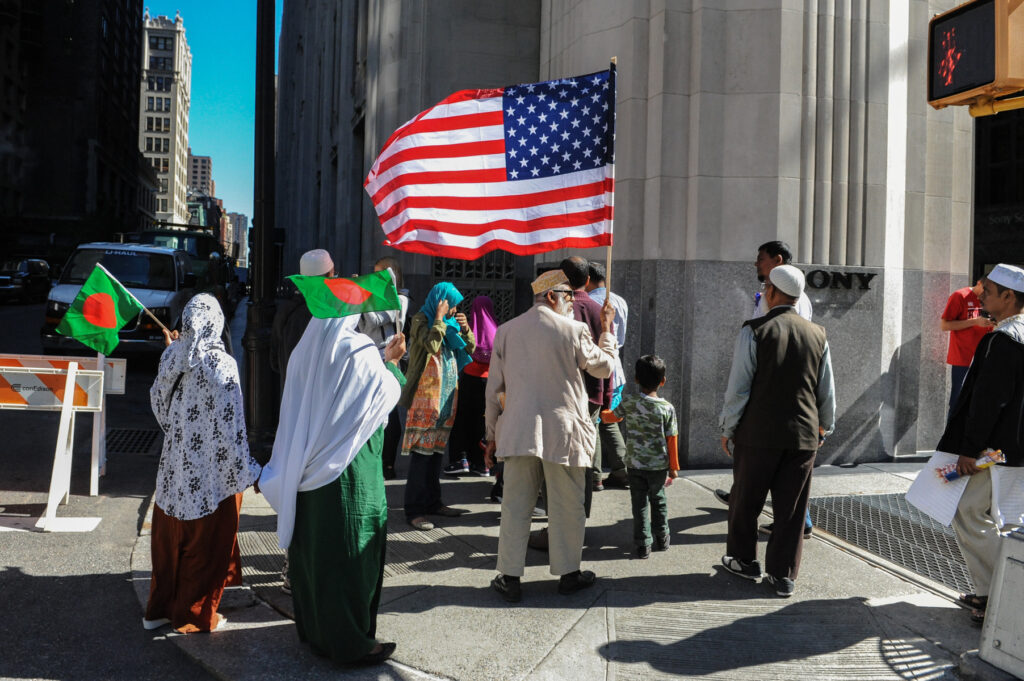
People participate in the annual Muslim Day Parade in the Manhattan borough of New York City, September 25, 2016. REUTERS/Stephanie Keith
While there are many sincere brothers and sisters who choose to celebrate a localized Eid Al-Adha, the movement to localize Eid-al-Adha inadvertently contributes to a broader effort to create a “Western Islam” that is separate from the larger effort to understand and apply Islam taking place across the Ummah.
We see this in the calls for “localized scholarship” that would specialize in a local “Fiqh of minorities,” and essentially change how we understand normative Islamic concepts of Halal and Haram.
We see this in some of our Masajids becoming increasingly silent about the suffering of our brothers and sisters across the Ummah – from the ghettos of Gaza to the “re-education” dungeons of Western China.
We see this in the refusal of some Islamic leaders to address the root cause of our decline as an Ummah, which is the lack of true Islamic political leadership that can cultivate the economic, political, and social resources necessary to revitalize us as an Ummah in the Muslim lands.
Increasingly, Muslims are being pressured to become isolated from one another and lose our sense of a common purpose, built upon our shared Aqeedah. And it is important for us to consider who benefits from this isolation.
The Capitalist nations, from the time they began invading and colonizing the Muslim lands, were always terrified of the strong collective Muslim identity. Capitalism enshrines individualism and self-interest into its core values, and cannot understand why a sister in Canada would be concerned about Muslims in Kashmir, or why a brother in Mali would lose sleep worrying about the condition of the Muslims in the Rakhine State of Myanmar.
This is a solidarity that the racially and economically divided Capitalist nations are unaccustomed to – and they recognize its power.
The agenda of a “Western Islam” is designed to assimilate Muslims into the Capitalist ideology, rendering our Islam as nothing more than a set of private rituals and dietary restrictions. Our collective obligation to concern ourselves with the suffering of the Muslims across the Ummah is stripped from us within this “Western Islam,” as is our shared duty to be one nation that enjoins all that is good and forbids all that is evil.
It is necessary for Muslims to reject this notion of regionalized Islam, and heed the word of our Creator:
“And hold fast, all together, by the rope of Allah, and be not divided; and remember with gratitude Allah’s favor on you, for you were enemies and He joined your hearts in love so that – by His grace – you became brothers; and you were on the brink of the pit of fire and He saved you from it. Thus does Allah make his signs clear to you: that you may be guided” [3:103]
May Allah (swt) accept the efforts of all the Hujjaj, and may He accept each and every act of worship, fast, and Eid prayer from all corners of the world. May He unite our hearts, our ranks, and our lands under the shade of a true, sincere Islamic political leadership that is committed to Islam and fearful of Him (swt) alone.
“…Therefore be steadfast in the way of your father, Ibrahim. Allah named you “Muslims” before [in former scriptures] and (by the same name) in this (Quran) so that the Messenger may be a witness regarding you, and you may be witnesses over the rest of mankind. Therefore, establish Salat and pay Zakat, and seek help in Allah; He is your Guardian – what an excellent Guardian and what an excellent Giver of Victory.” [22:78]

